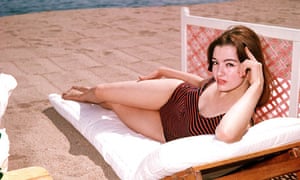2010
Books of the year
Jonathan Franzen's family epic, a new collection from Seamus Heaney, Philip Larkin's love letters, a memoir centred on tiny Japanese sculptures ... which books most excited our writers this year?
Saturday 27 November 2010
Chimamanda Ngozi Adichie
In Red Dust Road (Picador) Jackie Kay writes lucidly and honestly about being the adopted black daughter of white parents, about searching for her white birth mother and Nigerian birth father, and about the many layers of identity. She has a rare ability to portray sentiment with absolutely no sentimentality. Isabel Wilkerson's The Warmth of Other Suns (Random House) is a fresh and wonderful history of African-American migration. Chang-rae Lee's The Surrendered (Little, Brown) is a grave, beautiful novel about people who experienced the Korean war and the war's legacy. And David Remnick's The Bridge (Picador) is a thorough and well-written biography of Barack Obama. The many Americans who believe invented biographical details about Obama would do well to read it.
John Banville
William James, brother of the – in some quarters – more famous Henry, was that rarest of beings, a philosopher who wrote clear, elegant and exciting prose. In The Heart of William James (Harvard University Press), James's biographer Robert Richardson has put together a dazzling selection of this great thinker's work, with perfectly judged short pieces to usher in each of the selections.
Tony Judt, too, had a wonderful prose style, and his little book The Memory Chalet (William Heinemann), a collection of autobiographical essays, is beautiful and moving. Although Judt, who suffered from motor neurone disease, died earlier this year, this late work is more sustaining than sad.
Death stalks the pages of Seamus Heaney's collection Human Chain (Faber), but as we would expect from this most affirmative and celebratory of poets, the book in the end is really a meditation on life in all its fleeting sweetness.
Julian Barnes
Unfit for life, unsure of love, unschooled in sex, but good at washing up: Philip Larkin, in Letters to Monica (Faber), lays out his all-too-self-aware catalogue of reasons for being uncheerful. The reader is made slightly cheerful by the thought of not having had Larkin's life, but very cheerful that poems of such truth, wit and beauty emerged from it.
If Larkin represents native genius in its costive English form, Stephen Sondheim represents the fecund American version: Finishing the Hat (Virgin Books) is not just a book of lyrics (with cut and variant versions) but an exuberance of memories, principles, anecdotes, criticism and self-criticism.
Edmund de Waal's The Hare with Amber Eyes (Chatto & Windus) unexpectedly combines a micro craft-form with macro history to great effect.
Mary Beard
The most moving book of the year for me was Tony Judt's Ill Fares the Land (Allen Lane) – a powerful "living will" written as Judt succumbed to the complete paralysis of motor neurone disease. It is a marvellous denunciation of modern politics ("Something is profoundly wrong with how we live today"), written with all the grace and intensity that only the dying can muster.
On a cheerier note, I have only just caught up with Reaktion's series of books on animals. Robert Irwin's quizzical investigation of the Camel (one hump and two) and Deirdre Jackson's elegant exploration of the frankly rather dull life of the Lion will appeal even to those who would never normally pick up a book on the natural world.
William Boyd
Stephen Sondheim, who has just turned 80, is the unrivalled genius in the world of musical theatre with five or six masterworks that have redefined the form. A superb, generous melodist and a lyricist up there with Cole Porter and Noël Coward, Sondheim has now given us Finishing the Hat. His detailed commentary on his wonderful songs is honest, shrewd and fascinating. The ideal fix for Sondheim addicts.
Poetry addicts, meanwhile, should swiftly acquire Oliver Reynolds's latest collection, Hodge (Areté Books) – poems of beautiful precision that reveal their secrets slowly. And Samko Tále's Cemetery Book (Garnett Press) by the Slovak writer Daniela Kapitánová offers us, in a superb translation by Julia Sherwood, one of the strangest and most compelling voices I have come across in years. Muriel Spark meets Russell Hoban. An astonishing, dark and scabrous novel.
Anthony Browne
I was fascinated by the fattest book I read, Freedom by Jonathan Franzen (Fourth Estate), an epic novel that tells a funny and moving story of an American family unravelling in the first few years after 9/11. It's about the problems that come with liberty, seen through the lives of what at first seems like the perfect couple.
In contrast, my second choice is a small, exquisite picture book, Eric by Shaun Tan (Templar). This is the tale of a strange foreign exchange student, told from the point of view of the host family. Eric is drawn as a tiny, shadowy figure living in a world of giants. The narrator hints at the "cultural things" that divide them. This is a true picture book in that the illustrations tell as much as the words do, and is that relatively rare thing: a picture book appealing equally to both adults and children.










